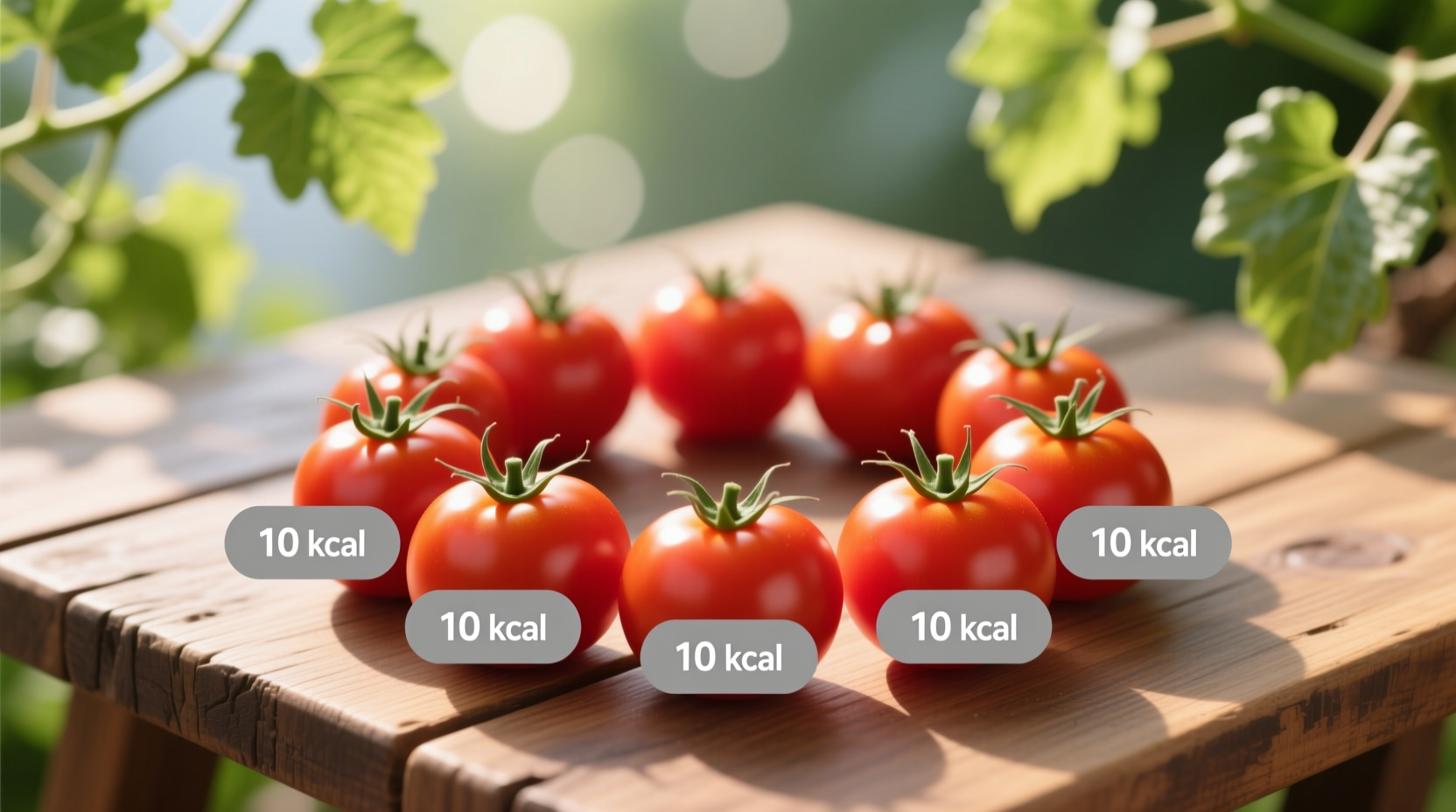One cup (150g) of grape tomatoes contains just 27 calories, making them an excellent low-calorie snack option packed with essential nutrients like vitamin C, vitamin A, and lycopene.
Looking for a guilt-free way to add vibrant flavor to your meals? Grape tomatoes deliver exceptional nutritional value with minimal calories. Whether you're managing your weight or simply seeking healthier snack alternatives, understanding the precise nutritional profile of these bite-sized wonders can transform your dietary choices.
What Exactly Are Grape Tomatoes?
Grape tomatoes, named for their oblong shape resembling actual grapes, represent a hybrid between cherry and plum tomatoes. Developed in the 1980s, they've become kitchen staples thanks to their sweet flavor, firm texture, and remarkable versatility. Unlike their juicier cherry tomato cousins, grape tomatoes maintain their shape better when cooked, making them ideal for salads, roasting, and snacking.
| Tomato Variety | Calories per 100g | Carbohydrates (g) | Vitamin C (mg) | Lycopene (mg) |
|---|---|---|---|---|
| Grape Tomatoes | 18 | 3.9 | 14 | 3.9 |
| Cherry Tomatoes | 18 | 3.5 | 15 | 2.5 |
| Roma Tomatoes | 21 | 4.8 | 14 | 5.2 |
| Beefsteak Tomatoes | 18 | 3.9 | 13 | 4.6 |
Nutritional comparison based on USDA FoodData Central measurements. Values represent average measurements per 100 grams of raw tomatoes.
Complete Nutritional Profile of Grape Tomatoes
Understanding the full nutritional picture helps maximize the health benefits of grape tomatoes. Beyond their low calorie count, these miniature powerhouses deliver impressive nutritional value:
- Calories: 27 calories per 1 cup (150g) serving
- Carbohydrates: 6 grams, with 2 grams of dietary fiber
- Protein: 1.3 grams per serving
- Vitamin C: 14 milligrams (23% of daily value)
- Vitamin A: 790 IU (16% of daily value)
- Lycopene: Significant amounts of this powerful antioxidant
- Potassium: 290 milligrams per serving
These values come directly from the USDA's National Nutrient Database for Standard Reference, ensuring accurate information for your dietary planning.
How Serving Size Affects Calorie Counting
When tracking grape tomato calories for weight management, understanding proper serving sizes proves crucial. Many people underestimate portions, which can impact daily calorie goals. Consider these common serving scenarios:
- Handful (about 10 tomatoes): Approximately 35 calories
- 1/2 cup serving: Roughly 13 calories
- Full cup (standard serving): 27 calories
- 100 grams (3.5 ounces): 18 calories
- Entire pint container: Approximately 100-120 calories
Unlike many snack options, grape tomatoes provide volume and satisfaction with minimal calories. Their high water content (about 95%) and fiber contribute to feeling full while delivering essential nutrients.

Health Benefits Beyond Calorie Counting
The value of grape tomatoes extends far beyond their low-calorie profile. These nutrient-dense fruits offer multiple health advantages:
Rich in Antioxidants
Grape tomatoes contain significant lycopene, the antioxidant responsible for their red color. Research from the National Institutes of Health indicates that lycopene may help reduce the risk of heart disease and certain cancers. Unlike many nutrients, lycopene becomes more bioavailable when tomatoes are cooked, making roasted grape tomatoes particularly beneficial.
Supports Hydration
With their high water content, grape tomatoes contribute to daily hydration needs. Proper hydration supports everything from cognitive function to physical performance, making these tomatoes valuable for active individuals.
Weight Management Friendly
The combination of low calories, high water content, and fiber makes grape tomatoes ideal for weight management. Studies published in the Journal of Nutrition show that high-volume, low-energy-density foods like tomatoes help people feel satisfied while consuming fewer calories overall.
Practical Ways to Enjoy Grape Tomatoes Daily
Incorporating grape tomatoes into your diet requires minimal effort but delivers maximum nutritional payoff. Try these simple strategies:
- Quick snacks: Keep a container ready in your refrigerator for instant healthy snacking
- Salad booster: Add to green salads for sweetness and texture without heavy dressings
- Roasted side dish: Toss with olive oil and herbs, then roast at 400°F for 15-20 minutes
- Pasta enhancement: Stir into warm pasta dishes just before serving
- Breakfast addition: Include in omelets or scrambled eggs for freshness
For maximum nutritional benefit, pair grape tomatoes with healthy fats like olive oil or avocado. This combination enhances the absorption of fat-soluble vitamins and antioxidants present in the tomatoes.
Common Questions About Grape Tomato Nutrition
Understanding these frequently asked questions helps clarify misconceptions about grape tomato calories and nutrition:











 浙公网安备
33010002000092号
浙公网安备
33010002000092号 浙B2-20120091-4
浙B2-20120091-4